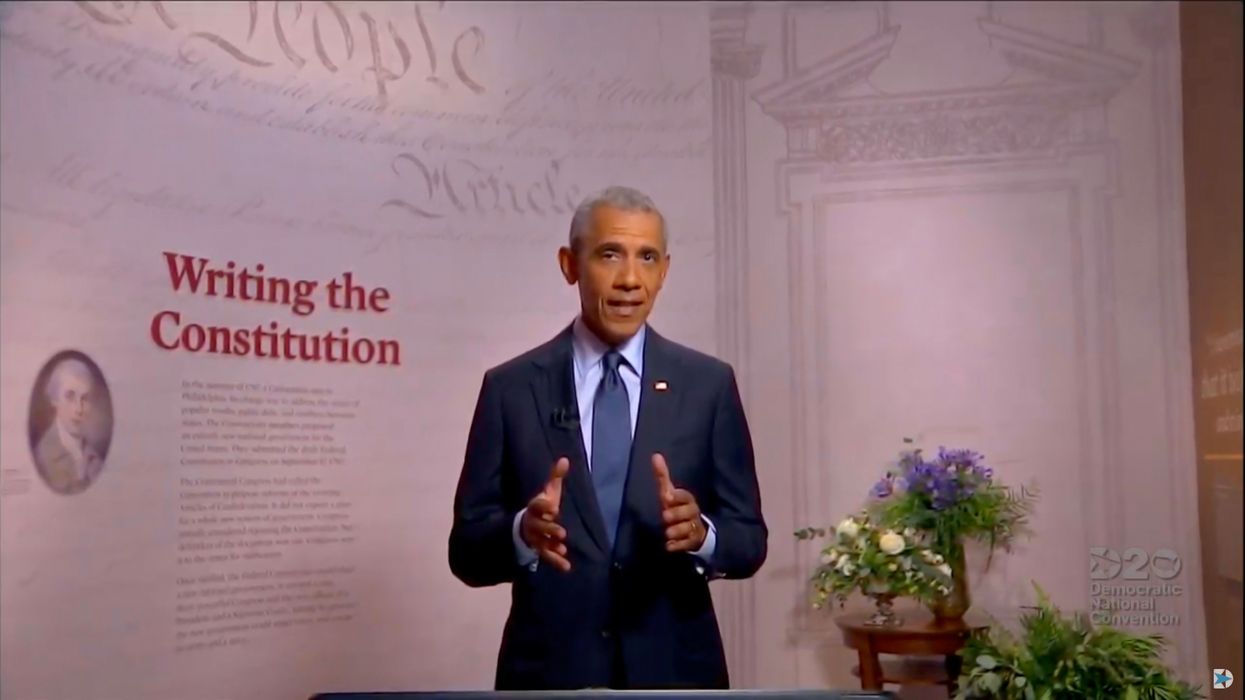The one constitutional office elected by all of the people is the presidency. So at minimum, we should expect a president to feel a sense of responsibility for the safety and welfare of all 330 million of us — regardless of what we look like, how we worship, who we love, how much money we have or who we voted for.
But we should also expect a president to be the custodian of this democracy. We should expect that regardless of ego, ambition or political beliefs, the president will preserve, protect and defend the freedoms and ideals that so many Americans marched for and went to jail for; fought for and died for.
I never expected that my successor would embrace my vision or continue my policies. I did hope, for the sake of our country, that Donald Trump might show some interest in taking the job seriously; that he might come to feel the weight of the office and discover some reverence for the democracy that had been placed in his care.
But he never did. For close to four years now, he has shown no interest in putting in the work; no interest in finding common ground; no interest in using the awesome power of his office to help anyone but himself and his friends; no interest in treating the presidency as anything but one more reality show that he can use to get the attention he craves.
Donald Trump hasn't grown into the job because he can't. And the consequences of that failure are severe: 170,000 Americans dead; millions of jobs gone while those at the top take in more than ever; our worst impulses unleashed; our proud reputation around the world badly diminished, and our democratic institutions threatened like never before.
[Joe Biden and Kamala Harris] believe that in a democracy, the right to vote is sacred, and we should be making it easier for people to cast their ballots, not harder.
They believe that no one, including the president, is above the law. And that no public official, including the president, should use their office to enrich themselves or their supporters.
They understand that in this democracy, the commander-in-chief does not use the men and women of our military, who are willing to risk everything to protect our nation, as political props to deploy against peaceful protesters on our own soil.
They understand that political opponents aren't "un-American" just because they disagree with you; the free press isn't the "enemy" but the way we hold officials accountable; that our ability to work together to solve big problems like a pandemic depend on a fidelity to facts and science and logic and not just making stuff up.
None of this should be controversial. These shouldn't be Republican principles or Democratic principles. They're American principles. But at this moment, this president and those who enable him, have shown they don't believe in these things.
No single American can fix this country alone. Not even a president. Democracy was never meant to be transactional: You give me your vote, I make everything better. It requires an active and informed citizenry. So I am also asking you to believe in your own ability — to embrace your own responsibility as citizens — to make sure that the basic tenets of our democracy endure.
Because that's what is at stake right now. Our democracy.
Look, I understand why a lot of Americans are down on government. The way the rules have been set up and abused in Congress make it easier for special interests to stop progress than to make progress. Believe me, I know.
I understand why a white factory worker who's seen his wages cut or his job shipped overseas might feel like the government no longer looks out for him, and why a Black mother might feel like it never looked out for her at all. I understand why a new immigrant might look around this country and wonder whether there's still a place for him here. Why a young person might look at politics right now, the circus of it all, the meanness and the lies and crazy conspiracy theories and think, what's the point?
Well, here's the point: This president and those in power — those who benefit from keeping things the way they are — they are counting on your cynicism. They know they can't win you over with their policies. So they're hoping to make it as hard as possible for you to vote, and to convince you that your vote does not matter.
That's how they win. That's how they get to keep making decisions that affect your life, and the lives of the people you love. That's how the economy will keep getting skewed to the wealthy and well-connected, how our health systems will let more people fall through the cracks. That's how a democracy withers, until it's no democracy at all.
And we can't let that happen. Do not let them take away your power. Do not let them take away your democracy. Make a plan right now for how you're going to get involved and vote. Do it as early as you can and tell your family and friends how they can vote too. Do what Americans have done for over two centuries when faced with even tougher times than this.
You can give our democracy new meaning. You can take it to a better place. You're the missing ingredient — the ones who will decide whether or not America becomes the country that fully lives up to its creed.
That work will continue long after this election. But any chance of success depends entirely on the outcome of this election. This administration has shown it will tear our democracy down if that's what it takes to win. So we have to get busy building it up.



















Trump & Hegseth gave Mark Kelly a huge 2028 gift